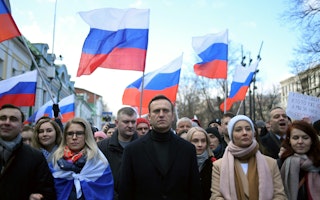Estonia’s Role as an Advocate for Internet Freedom
By Linnar Viik
As of 2012, Estonia is ranked third in the world in freedom of the press, first in Internet freedom, third in the world in IT legal acts, and second in the world in Internet access in schools. We may be the only people in the world who smile while filing their taxes through the electronic Tax Board, the uncrowned world champion in the Internet based national census, and the leader in the spread of the free Internet in the still-expanding universe. We suffered losses in a cyberwar but survived and became stronger. Estonia and its synonym “E-stonia” have become the envy of progressive governments and entrepreneurs, and a pilgrimage destination not just for nature enthusiasts but for those who want to see digital signatures in action. We have skillfully succeeded at harnessing global technology trends, giving them local value.
Estonia’s current ruling coalition has sensed this duty, stating in its Government Action Plan in the field of information society: “Estonia must become a role model for the world in Internet-related legislative drafting” and “Estonia must assume the role of active leader in developing international law to safeguard personal rights and freedom of information in the use of the Internet.” Estonia sees itself as having a natural role in influencing policy in the European Union as well and our contribution to the Europe 2020 strategy states: “Besides supporting a policy that promotes an open society, free competition and a free Internet, Estonia also wishes to contribute actively in the field of Internet security.” In short, Estonia wants to be an advocate for Internet freedom at a world level, because the role of leader and freedom oblige us to do so.
At the same time global Internet is balkanizing—various regulatory initiatives are curtailing movement of free information and availability of services across borders. The roots of these initiatives are different, but their goal is surprisingly similar—to bring about stronger government control over online activities. However, doing so can jeopardize or run roughshod over fundamental civil rights and liberties. Such initiatives plan state-sanctioned restrictions on the free movement of information and seek international acknowledgment of the “rights” of such countries. Other initiatives are related to attempts to muddy the discussion on cyber security, bringing in concepts like “information war” and “propaganda war” and insinuating that the Internet is a potential weapon of mass destruction.
We are witnessing increasing collisions between global business interests over various Internet-based new business models and traditional distribution channels—part of the much talked-about multinational Anti-Counterfeiting Trade Agreement (ACTA) relates to this area. On the backdrop of these processes with their disparate origins, there is also a real cyber security risk—above all to vital, critical infrastructures—and real international cyber crime, intertwined to a closer or lesser degree with the imprimatur (or ignorance) of various governments—as well as topics in which Estonia has learned its lessons, quickly raised its capacity to deal with the risks, and able to be engaged in international dialogue with its partners. The international discourse often has an emotional backdrop, and it is hard to discern where complete ignorance ends and where deliberate static begins. It is in this sort of murky environment that we are shaping the future, a world where the Internet is increasingly interwoven with daily life in all societies around the world. The discussion about the future of the Internet is not taking place in just one place or with the aim of reaching some final resolution; rather it takes place in many different international bodies and is ongoing.
The origins and development of ACTA should be a striking lesson for those leading the push to update the international laws on international property and policy planners everywhere in the world. The means and arguments used to leave the World Trade Organization and the World Intellectual Property Organization out of the agreement brings up justified questions in these organizations’ member states. The fact that ACTA bands together countries that have an economic policy interest in more stringent regulation of intellectual property and leaves aside countries that are net consumers of products and services protected by intellectual property, represents business interest of some and hinders those of others, raises justified questions as to whether the motives of the process are all that noble both in countries who started ACTA and in those who were left out of the negotiations. The largest and loudest voices have been the protests against the possibility that fundamental individual freedoms could be relegated to corporate business interests. Yet the build-up of emotions and rise of urban legends could have been avoided by a transparent process and public discussion and insightful expert analysis. Arrogance and irony with regard to criticism—some of the criticism justified, some of it callow—breeds defiance and resentment toward governments and their operating mechanisms in general. As long as things are not clear, questions are justified. As long as there is no understanding, scepticism is warranted.
Now that European Commission has decided to suspend the ratification of ACTA for the time being, we have the opportunity to calmly focus on essential questions of Internet freedom and intellectual property in an open information society.
The cyberattacks against Estonia in 2007 helped lead to a substantive discussion about cyber defense, led to a rise of awareness in other countries about the risk, and shaped our unique, internationally recognized cyber defense capability based on public private partnership. The same sort of multipartite work based on substantive discussion and our recognized interests must now be done to create the capacity for intellectual property and Internet freedom in Estonia.
Linnar Viik is chairman of the board of the Open Estonia Foundation.


